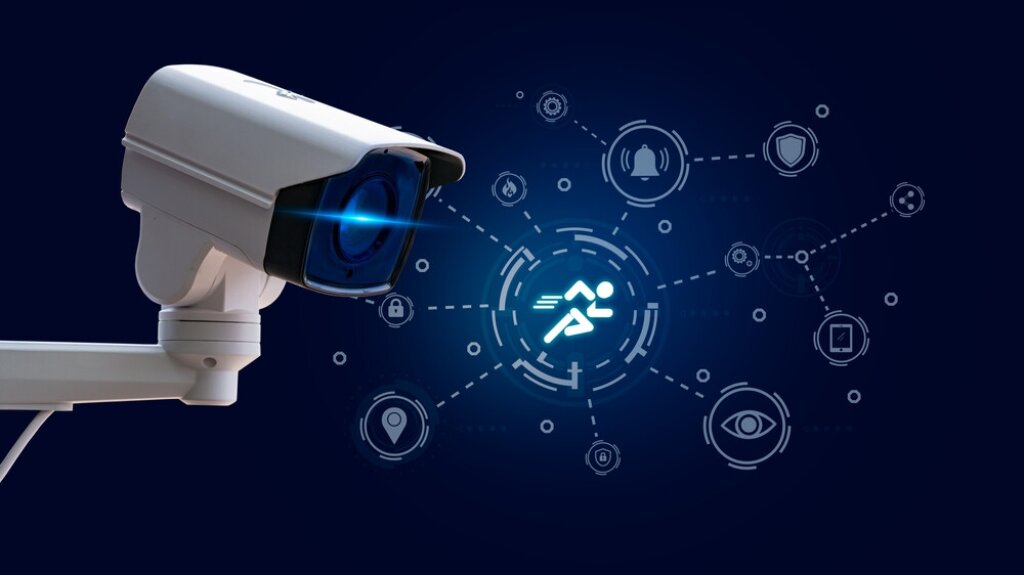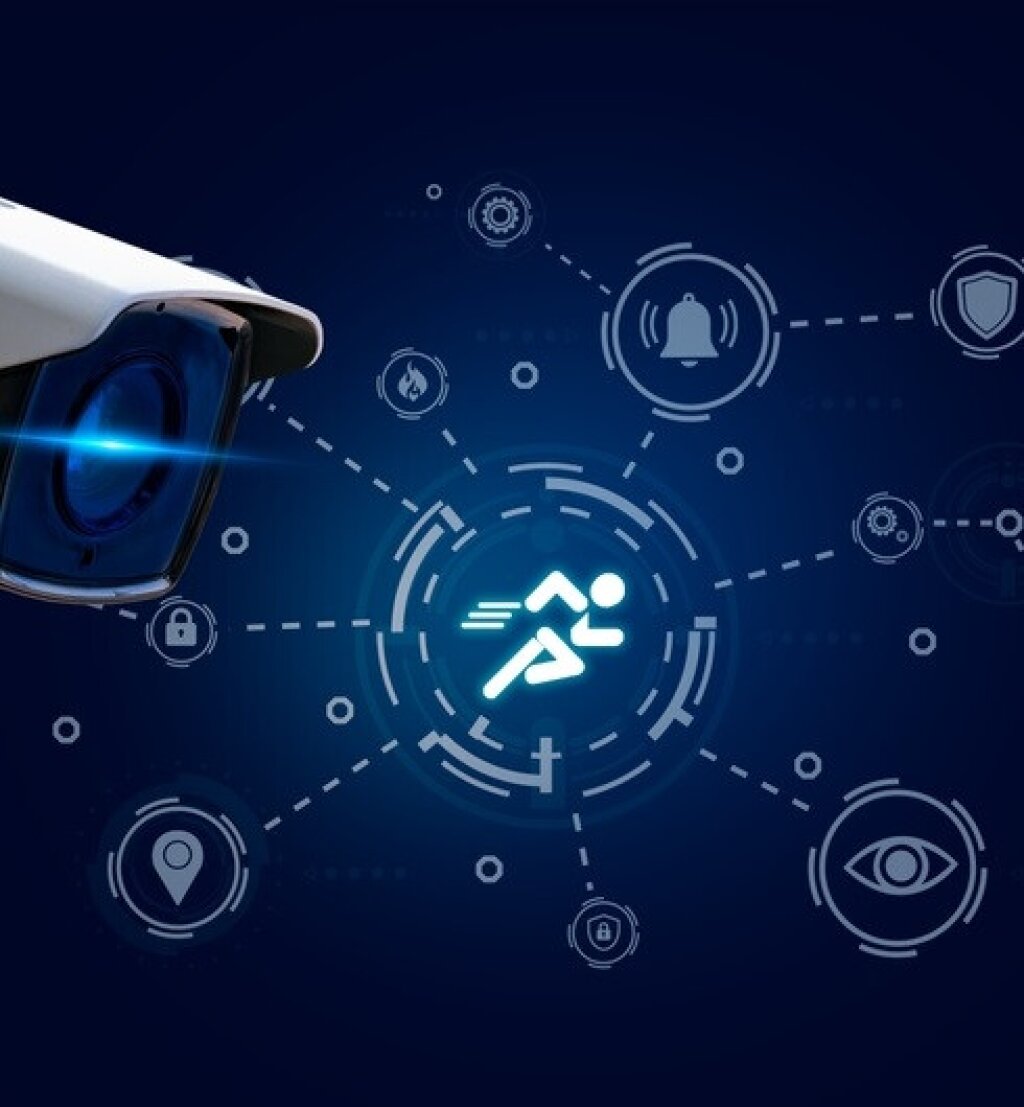Can CCTV Cameras Work Without the Internet?
CCTV (Closed-Circuit Television) cameras are a powerful tool that is used extensively for security and protection purposes. CCTV has become commonplace in most businesses and many private individuals invest in them.
CCTV cameras are a cornerstone of modern security systems. They provide a reliable way to monitor and safeguard homes, offices and public spaces.
To detect, prevent and prosecute criminals, CCTV cameras are used for private and public surveillance. Installed in commercial and residential properties, different types of cameras can be placed indoors and outdoors.
CCTV cameras pick up a sequence of images that are transmitted as a signal to a recording device and displayed on a screen.
The signals are not publicly broadcasted - i.e., the circuit is closed - and can only be accessed by authorised individuals.
However, a common question arises: can CCTV cameras function without internet access? The answer depends on the type of CCTV system in use.
This article explores the role of WiFi and other connectivity options in the performance and reliability of CCTV cameras.

Do CCTV Cameras Need WiFi?
The necessity of WiFi in CCTV systems depends on the type of camera and its intended function. Wireless CCTV cameras, for instance, heavily rely on WiFi for their core features:
Remote Access
WiFi enables users to view live footage, receive alerts and control cameras remotely via smartphone apps.Cloud Storage
Many WiFi-enabled cameras store recorded footage in the cloud, which requires an active internet connection for uploading and retrieval.
While WiFi is essential for these functions, not all CCTV systems require it. Wired cameras, which do not rely on WiFi, offer a more stable alternative for users with limited or no internet connectivity.
WiFi CCTV Cameras: Benefits and Limitations
Benefits
Flexibility
WiFi cameras are easy to install and relocate, which makes them ideal for areas without extensive wiring.Remote Monitoring
Users can access real-time footage from anywhere with an internet connection.Smart Features
WiFi cameras often come with AI-based features like motion detection, facial recognition and integration with smart home systems.
Limitations
Signal Interference
WiFi networks are susceptible to disruptions from walls, electronics and other devices.Connectivity Drops
Unstable WiFi can lead to footage lag or loss, which compromises the system's reliability.Data Privacy
Cloud-based storage raises concerns about data security and privacy.
Types of CCTV Systems: Wired vs Wireless
When choosing between wired and wireless CCTV systems, understanding their differences is crucial:
Wired Systems
Use physical cables for power, video transmission and sometimes data to ensure consistent performance.Wireless Systems
Use WiFi for communication, which offers flexibility but requires strong internet connectivity.
Wired CCTV: Pros and Cons
Pros
Stability
Wired systems provide uninterrupted performance without reliance on WiFi or battery power.High-Quality Footage
Wired connections ensure clear and reliable video feeds.No Signal Interference
Physical cables eliminate issues caused by WiFi disruptions.
Cons
Complex Installation
Setting up wired systems requires drilling, cable management and professional assistance in some cases.Limited Flexibility
Once installed, wired cameras are challenging to reposition.
How Does WiFi Impact CCTV Performance?
WiFi plays a pivotal role in the performance of wireless CCTV cameras. WiFi facilitates:
Real-Time Streaming
Ensuring smooth video feeds on remote devices.Cloud-Based Storage
Facilitating seamless upload and access to recorded footage.
However, weak WiFi signals or signal drops can disrupt these functions, which highlights the need for a robust and stable network.
Ensuring a Stable Connection for Wireless CCTV
To maintain optimal performance for wireless CCTV cameras:
Upgrade Your Router
Invest in a high-speed router with extended range.Position Strategically
Place cameras and routers in areas with minimal obstructions.Use Signal Boosters
Extend your WiFi range with boosters or mesh systems.Secure Your Network
Protect against unauthorised access with strong passwords and encryption.
Other Connectivity Options for CCTV Systems
WiFi isn't the only way to connect CCTV cameras. Alternatives include:
Ethernet Cables
Offer reliable data transmission for both wired and wireless cameras.Power over Ethernet (PoE)
Combines power and data in a single cable to simplify installation and ensure stability.
Advantages of PoE CCTV Cameras
PoE systems are gaining popularity for their blend of reliability and convenience:
Simplified Setup
One cable supplies both power and data, which reduces clutter.Enhanced Reliability
PoE eliminates dependency on WiFi and ensures consistent performance.Scalability
Ideal for expanding networks in commercial or large residential setups.
Cellular Signal-Ready Security Cameras
Some cameras bypass the use of Wi-Fi by connecting to the internet using 4G/LTE or 5G cellular signals, which are what mobile phones use to connect to the internet. These cameras function similarly to Wi-Fi cameras. They can livestream, send live alerts and send video to the cloud for storage.
The cameras have to be on a cellular network, which involves fees. The cost can be high which means these camera types have not been deployed extensively to date.
Security Cameras With Local Video Storage
To avoid the high cost of a data plan and cloud service, it is possible to bypass Wi-Fi with cameras that use local storage to capture video. These cameras can record video 24/7, which is convenient, but there are potential drawbacks to going this route.
The biggest limitation is that these cameras run on a closed system, which means you won’t be able to receive push notifications or stream live video.
A second consideration is that footage is stored in the cameras or on a DVR, which makes it less accessible than if it were stored in the cloud.
Considerations When Choosing Between WiFi and Non-WiFi CCTV Systems
Selecting the right CCTV system involves evaluating several factors:
Location
For remote areas without internet, wired systems or PoE are better suited.Installation Complexity
Wireless systems are easier to install but may require ongoing WiFi maintenance.Internet Availability
If reliable internet is accessible, WiFi cameras offer advanced features and convenience.
Compliance is Essential Regardless of Connectivity
Whether you select standalone or Internet-connected CCTV, CCTV cameras provide a reliable and cost-effective deterrent against crime. Cameras play a vital role in business security and home security. Apart from having 24-hour patrols, CCTV is the only way to monitor activity inside and outside a property continuously.
Having captured and stored video footage it is important to remember, when sharing video footage with third parties, redaction (data masking) is critical to ensure compliance with strict regulations such as GDPR.
All personal data, other than that of the subject of interest, must be redacted. Personal data includes faces, name tags, information on computer screens, distinguishing marks and vehicle licence plates.
Whether you need the flexibility of WiFi-enabled cameras or the stability of wired systems, compliance with privacy laws is essential to avoid penalties and reputational damage.
Explore Facit’s AI-driven Identity Cloak, to learn how you can redact video footage quickly and accurately to ensure compliance.
Related Articles
CCTV redaction software for compliance and business solutions



